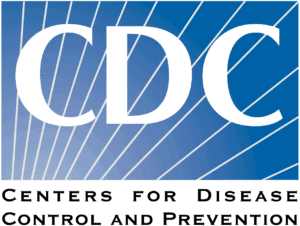
On September 13, the Center for Disease Control and Prevention published their study in Vaccine Journal identifying a possible link between miscarriages in pregnant women and multiple doses of a specific influenza vaccine. The study was conducted over two flu seasons (2010-2011, 2011-2012) and matched 485 women who had miscarriages with 485 women who had normal deliveries or stillbirths during the study period.
The study identified an increased risk of miscarriage in women who received a specific pH1N1-containing influenza vaccine in two consecutive flu seasons, the second of which was given in the month prior to miscarriage. No link was found between pH1N1-containing flu vaccinations and miscarriage if the woman did not receive an influenza vaccine in the prior flu season. Specific risk of miscarriage after vaccination was not identified. While this study certainly raises concern, insufficient information and weaknesses in study design remain worrisome to all.
Weaknesses in Study Design
- Small Sample Size: The small sample size makes it difficult to discern whether this is a true association between influenza vaccination and miscarriages or a statistical anomaly.
- Miscarriages in First Trimester: The study focused on miscarriages in the first 19 weeks, when these events are more common. It is estimated that 10-20% of pregnancies end in miscarriages. This number is most likely higher, as some women may have miscarriages before they know they are pregnant.
To Vaccinate or Not to Vaccinate?

Understandably, this information is concerning to pregnant women. However, this particular study is limited in scope and does not warrant changing influenza vaccination recommendations. More research is necessary to determine if a causal relationship between the two variables exist and how risky influenza vaccination could potentially be for pregnant women. Notably, a similar study published in the same issue of Vaccine found no association between influenza vaccinations (seasonal and H1N1) and adverse pregnancy and birth outcomes
It’s likely that this study will increase panic, causing pregnant women to fear receiving the influenza vaccination. According to Dr. Sean Siler, VIGILINT Chief Medical Officer:
“Influenza vaccinations have long been considered safe during pregnancy. Influenza during pregnancy is often much more serious and can become life threatening for both the mother and child. This small study suggests an association, but not causation, and the rates of pregnant mothers that will require ICU care or die from influenza far surpass this paper’s proposed miscarriage risk. I still recommend that women get their seasonal influenza vaccine; pregnancy or future pregnancy is not a contraindication.”
It is common for OBGYN practices to not treat patients that do not receive the influenza vaccination. Women should consult their personal physicians to make informed and individualized decisions regarding influenza vaccination.
Key Takeaways
- More studies are needed to determine if there is an association between influenza vaccinations and miscarriages
- VIGILINT, CDC, and study authors continue to maintain that pregnant women should still get the influenza vaccination.
